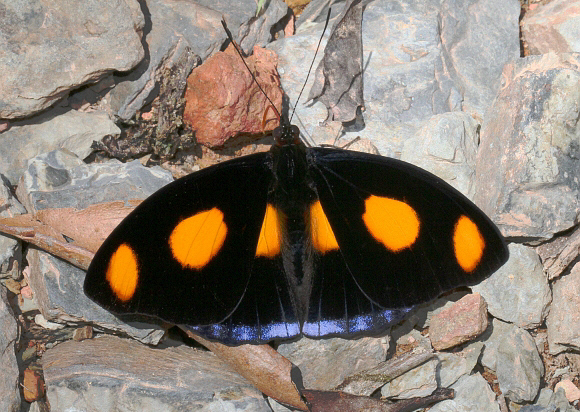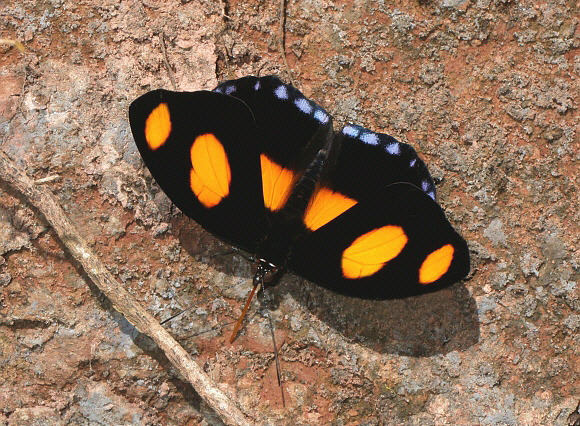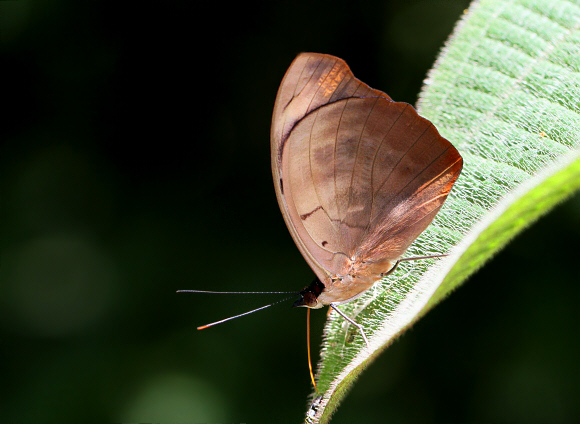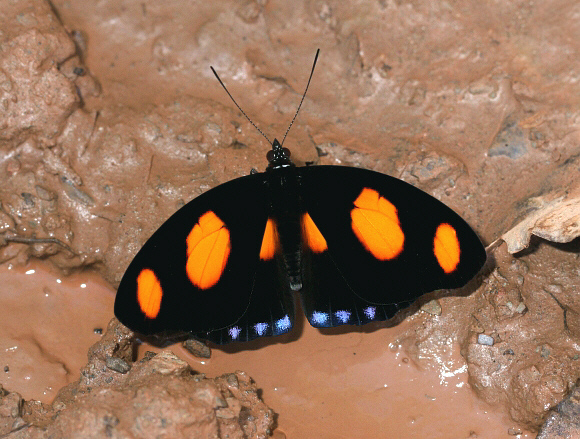 Catonephele numilia esite, Tatama NP, Colombia – Adrian Hoskins
Catonephele numilia esite, Tatama NP, Colombia – Adrian Hoskins
Introduction
The genus Catonephele contains 11 species, with wingspans of circa 65-80mm. The males are dark brown on the upperside with dazzling reflective orange patches which vary in size and shape from species to species. Females are entirely different in appearance. In most species they have dark brown wings marked with linear rows of cream spots. The female of numilia however has a large cream patch in the median area of the forewing, and has the basal and submarginal areas of the hindwings deep red. Both sexes of all species have cryptic undersides in shades of brown.
Catonephele numilia occurs from Mexico to Peru.
 Catonephele numilia, Catarata Bayoz, La Merced, Peru – Adrian Hoskins
Catonephele numilia, Catarata Bayoz, La Merced, Peru – Adrian Hoskins
Habitats
This species breeds in wet rainforest and cloudforest at elevations up to about 1800m.
 Catonephele numilia esite, Medellin, Colombia – Adrian Hoskins
Catonephele numilia esite, Medellin, Colombia – Adrian Hoskins
Lifecycle
The egg is barrel-shaped, white, and laid singly on the foliage of Alchornea ( Euphorbiaceae ). The fully grown caterpillar is green mottled with white spots. It is adorned with whorled orange spikes along the back, and green spikes along the sides. The pupa is green with brown or silvery wing pads. It is attached by the cremaster to leaves, with the body projecting laterally.
Adult behaviour
The butterflies are usually encountered singly. Males perch on tree trunks and rock faces, often in a head-downwards posture. They also bask on foliage or on fallen branches in light gaps, often less than a metre above ground level, and are reminiscent in behaviour of Nessaea. Males often imbibe mineral-rich moisture from damp earth along forest tracks and roads. If alarmed they fly up and spend a few moments circling cautiously, but soon resettle close to their original position.
Females are scarcer, and usually seen when searching for oviposition sites along forest trails. They can occasionally be seen basking on sunlit paths.

Catonephele numilia, Catarata Bayoz, La Merced, Peru – Adrian Hoskins
